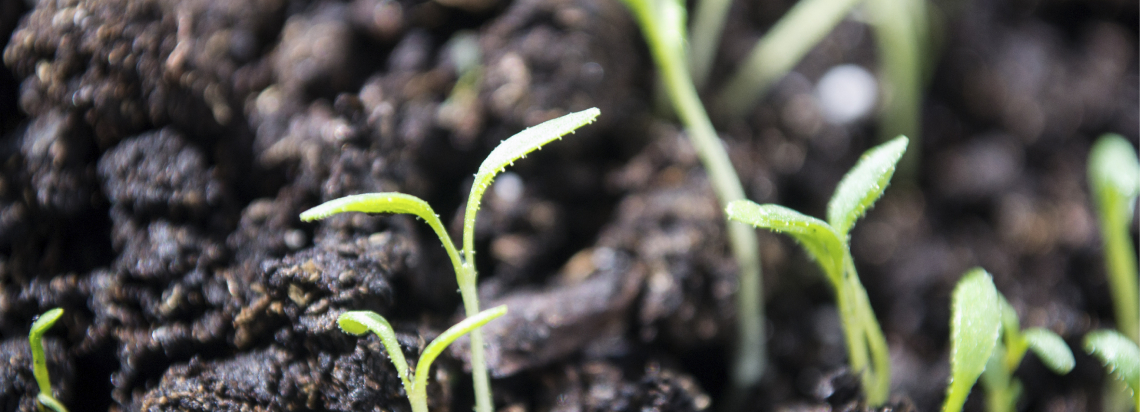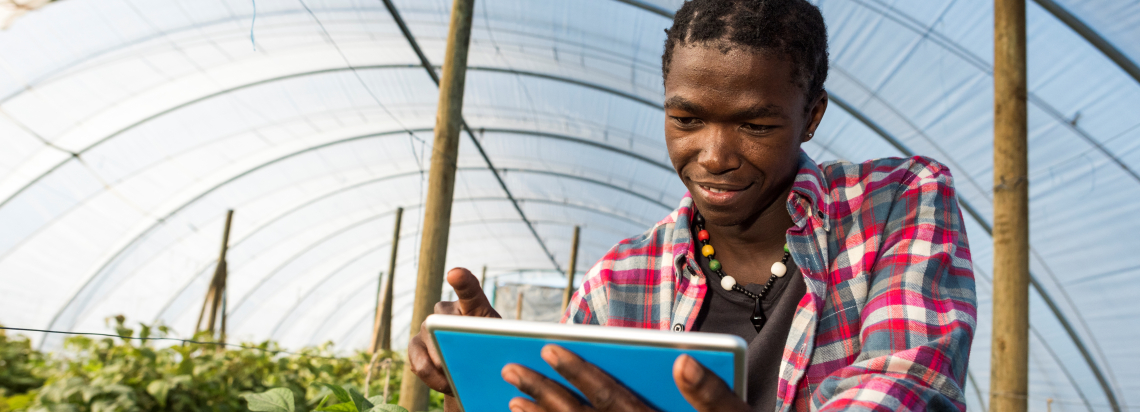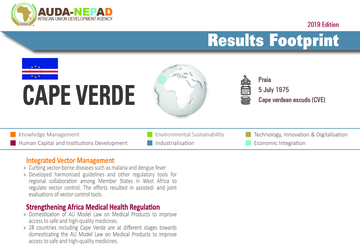 Cape Verde
Cape Verde
Official Name: Republic of Cabo Verde
Capital: Praia
Independence Day: 5 July 1975
Currency: Cape verdean escudo (CVE)
Key Result
Nearly 8,000 women benefitted from the implementation of four (4) projects in Cape Verde. The Cape Verde Institute for Gender Equality and Equity (ICIEG) successfully campaigned for the adoption of the Law on Gender-based violence, which was enacted in March 2011 and provides an enhanced set of preventative measures against GBV. ICIEG also undertook numerous initiatives to promote the rights of women.
An Agricultural Risk Assessment study was undertaken in 2016. The outcomes of the study highlight: the archipelago geographical condition (risk related to poor conditions of agriculture commodities’ transport between islands); drought conditions and scarcity of water resources, including potable water, water for irrigation and livestock; volcanic eruption and bushfire (related to catastrophic risks) and; a high vulnerability level of rural and urban households whose livelihoods depend mostly on migrant remittances. Building on the study in 2016, a risk assessment study was completed in 2017 which identified five major risk factors for Cape Verde. These include price volatility, drought, plant pest and disease, among other.
Five climate change adaptation measures and techniques were identified in the forestry sector, namely: Agroforestry plantations with apiculture; Range Management Areas (RMA) with Grazing Association (GA); Grass planting in stone lined slopes; Conservation Agriculture practices; and Construction of dams and community reservoirs. Further, four climate change mitigation techniques were identified in the forestry sector, namely: Protection of forest reserves; Protection of indigenous woodlands; Agroforestry plantations; and Orchard growing.
According to the CAADP Biennial Review Report, the country recorded a rate of 71% for the CAADP completion process. Further, 19% of youth engaged in new job opportunities in agriculture value chains. There has also been an 83.3% increase of the size of irrigated areas from its value of the year 2000 and inclusive institutionalized mechanisms for mutual accountability and peer review are at 67%. With regards to climate and weather related shocks, 53% of farm, pastoral, and fisher households were found to be are resilient.
Related
Projects


CAADP Compact: Cape Verde signed the CAADP Compact 10 - 11 December 2009, with the aim of transforming agriculture through food and nutrition security, wealth creation, and economic growth to ensure prosperity for all.
National Agriculture Investment Plan: Technical experts were deployed to Cape Verde from 19 – 25 September 2010 to undertake independent technical reviews of its National Agricultural Investment Plan (NAIP). Cape Verde is currently implementing its NAIP through the support of NEPAD.
Business: On 16 and 17 November 2010, the NEPAD Agency facilitated Cape Verde’s first Business Meeting.

Project : TAH programme
Description : This is phase I of the continental connectivity programme that focuses on completion and standardisation of the TAH missing links by 2030
Project : Single African Sky phase 1 (design and initial implementation)
Description : Single African Sky is a continental programme that will create a high-level, satellite-based air navigation system for the African continent
Project : Yamoussoukro Decision implementation
Description : Accelerate Yamoussoukro Decision implementation by identifying countries that are ready to fully implement it, and discussing and agreeing with both their governments and airlines to launch the voluntary club on a full membership basis;
Project : Praia-Dakar-Abidjan Multimodal Corridor
Description : This programme would improve marine transport and the connection between island and mainland countries by creating a new maritime service between regional ports and facilitating this with a modern information system that links the maritime service with ports and road corridor in the Dakar-Abidjan Corridor.
Project : ICT Enabling Environment
Description : This programme would improve the environment for the private sectors to invest in high-speed broadband infrastructure
Project : ICT Terrestrial for Connectivity
Description : This programme has two main components : secure each country connection by at least two broadband infrastructure and ensure the access to submarine cable to all landlocked countries
Project : Internet Exchange Point (IXP) programme
Description : The aim of this programme is to provide Africa with adequate internet node exchange to maximise internal traffic
Results:
•In collaboration with Institute of Cape Verde for Gender Equality and Equity ( ICIEG ) 205 Police Officers, 5 Doctors, 8 Nurses, a Judge and Prosecutor, 52 Lawyers, 18 Technical Services capacitated Gender Violence base Victims and 5 488 Victims received Assistance
•Established and supported technically and financially three Business Incubators to accelerate development of SMEs
•74 435 women empowered economic and financial terms: Income generation skills; Deployment of technical assistance to boost agriculture production for both consumption and commercial purposes; Accessing agricultural extension services; Promotion of gender inclusiveness in decision making; Creation of enabling environment to access land; Land tenure and legalization of land title for women; Youth job creation; SME management; Informal and Regional Trade development.
Results:
•74 435 women empowered economic and financial terms: Income generation skills; Deployment of technical assistance to boost agriculture production for both consumption and commercial purposes; Accessing agricultural extension services; Promotion of gender inclusiveness in decision making; Creation of enabling environment to access land; Land tenure and legalization of land title for women; Youth job creation; SME management; Informal and Regional Trade development.
•25 438 women support through institutional based capacity building.

Regional project to strengthen the capacity of fisheries stakeholders to climate change in West Africa
Guinea, Senegal, Cape Verde- Regional Network of Fisheries (REPAO)
• 1,000 copies of a book on scenarios for the growth of fisheries in relation to climate change in West Africa published, disseminated and shared, including online publication
• National information and sensitization workshop were organised in Cape Verde, Guinea and Senegal and communication tools (film, books, leaflets and posters) presented and disseminated
• 1,500 copies in French, English and Portuguese of the documentary film were produced, shared and disseminated at regional level and in Cape Verde, Guinea and Senegal.
• 1,000 leaflets and posters in French, English and Portuguese are printed, shared and disseminated at regional level and in Cape Verde, Guinea and Senegal.
• Information and awareness-raising sessions were organised on processing areas for fishery products for the benefit of women operating in the fisheries sectors in Cape Verde, Guinea and Senegal.
• 3 national committees on climate change in Cape Verde, Guinea and Senegal supported to enable them include fisheries among their priority areas, and to develop proposals for action programmes on fisheries and climate change in the National Adaptation Programmes of Action

ASTI has captured comprehensive information on STI and consequently built in-country capacity to collect, analyse & publish data and information on research & development (R&D) and Innovation

Advocacy and Strengthening of Negotiation Capacities on Post-2015 Development Agenda through the Common African Position (CAP)
Global Partnership for Effective Development Cooperation (GPEDC)
The Global Partnership is an inclusive political forum bringing together governments, bilateral and multilateral organisations, civil society and representatives from parliaments and the private sector, committed to strengthening the effectiveness of development co-operation to produce maximum impact for development. Through its multi-stakeholder platform, the Global Partnership provides support, guidance and shares knowledge to boost development impact with a strong country focus, and to ensure a degree of coherence and collaboration among all development stakeholders on co-operation flows and policies. It offers a global mechanism to ensure co-operation is based on Busan principles of ownership, results, inclusiveness; and transparency and accountability to deliver tangible results on the new SDGs. NEPAD Agency is the Africa’s Secretariat for the Global Partnership.
Results (2013 – 2015)
Advocacy and Strengthening of Negotiation Capacities on Post-2015 Development Agenda through the Common African Position (CAP):
• The multi-stakeholder framework of engagement specifically enhanced dialogue towards ensuring the required mass to influence the Post-2015 Global Agenda and Development Goals relevant to the Continent;
• This intervention helped strengthen country and regional level negotiating capacities for the effective incorporation and articulation of Africa’s priorities as enshrined in CAP in the final Global SDGs;
• The project enabled the participation of African stakeholders at the Means of Implementation Engagement, 3rd Financing for Development Conference and the UN General Assembly that adopted the new SDGs. This ensured the incorporation of Africa’s development priorities into the new goals through developing essential negotiation capacities;
• Through the CAP/SDGs space on the Africa Platform for Development Effectiveness (APDev), knowledge products and negotiation documents, as well as, policy briefs where successfully disseminated to the African negotiators in New York and kept the continent’s stakeholders informed of the overall process;
• Development and dissemination of post-2015 Policy Briefs on “Financing and Partnerships” and “Structural Economic Transformation and Inclusive Growth”. These are priorities outlined in the CAP and the policy briefs where utilized in the negotiation process for the African continent.
Global Partnership for Effective Development Cooperation (GPEDC):
• Africa secured the hosting of the 2nd High Level Meeting (HLM) of the Global Partnership. This was attained through robust negotiation and facilitating a common voice from Africa with regards to this critical engagement by the NEPAD Agency. The 2nd HLM will be held in Nairobi Kenya;
• The NEPAD Agency advocated for the full inclusion and participation of Africa’s Regional Economic Communities (RECs) in conducting the 2nd GP Monitoring Exercise. This was a fundamental achievement considering the RECs are the continent’s building blocks with regards to socio-economic transformation;
• The Africa Action Plan on Development Effectiveness (AAP) was granted the status of an official Global Partnership Initiative (GPI) at the Planning Meeting in Brussels. The AAP was developed by the NEPAD Agency in consultation with African multi stakeholders. This has enabled the Agency to successfully mobilize resources towards the implementation of the AAP.

Description : The use of political gravitas and goodwill to unblock and facilitate political bottlenecks affecting the implementation of ICT broadband and optic fibre projects on the continent

An Agricultural Risk Assessment study is being undertaken in Cabo Verde in 2016. The results of the study will contribute to identifying the major risk factors and the required tools and policy instruments to be designed and implemented. A risk management strategy including a Capacity Development component will be integrated into the CAADP national investment plan in order to build and strengthen national institutions and stakeholders ability to manage agriculture risks.
you agree to the AUDA-NEPAD Privacy Policy.


